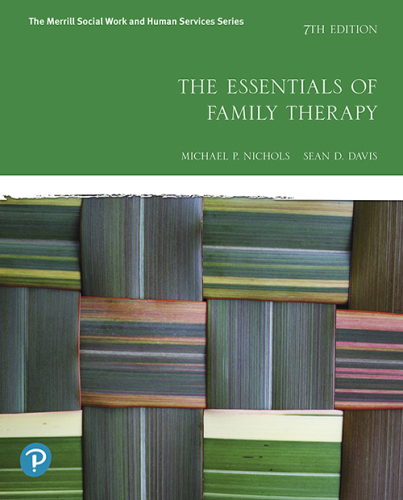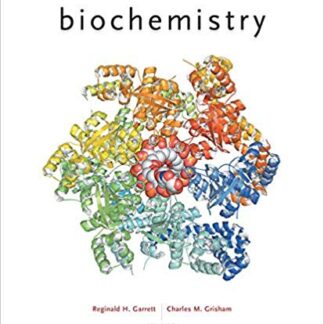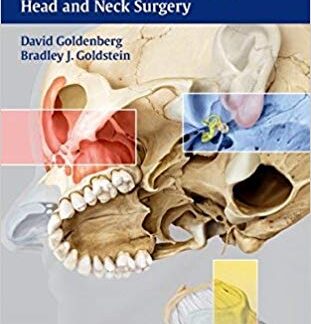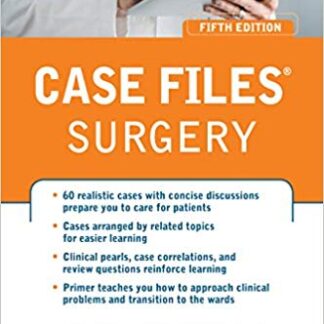Description
The Essentials of Family Therapy 7th Edition by Michael Nichols, ISBN-13: 978-0135168097
[PDF eBook eTextbook] – Available Instantly
- Publisher : Pearson
- Publication date : April 19, 2019
- Edition : 7th
- Language : English
- 288 pages
- ISBN-10 : 0135168090
- ISBN-13 : 978-0135168097
NOTE: This book is a standalone book and will not include any access codes.
A pragmatic, clinical approach focuses on the essential knowledge needed for the successful practice of family therapy.
The Essentials of Family Therapy examines the full scope of family therapy – its rich history, classic schools, and latest developments – with an increased emphasis on practical issues. With its focus on contemporary clinical practice, illustrative case studies, and extremely practical presentation, The Essentials of Family Therapy helps readers gain a thorough understanding of why a therapy technique is successful and how they can apply it in their own practice.
The 7th Edition features new case studies with Reflect and Apply Questions to help students think about how to apply therapeutic principles; end-of chapter questions that are designed to help readers think critically about the principles in the chapter and consider how to apply them; and additional content highlighting the essential concepts in each chapter. New material that emphasizes recent trends in clinical practice has been added, including: a revised Cognitive-Behavioral chapter that focuses on recent trends (Ch.9); a new section on families with transgender members (Ch. 10); and a new chapter about research (Ch. 14).
Table of Contents:
Preface
New to This Edition
Also Available with MyLab Helping Professions
Brief Contents
Contents
Part I The Context of Family Therapy
Introduction: Becoming a Family Therapist
The Myth of the Hero
Psychotherapeutic Sanctuary
Family Versus Individual Therapy
The Power of Family Therapy
Essential Highlights
Review Questions
Reflection Questions
Recommended Readings
Chapter 1 The Evolution of Family Therapy
Essential Points in This Chapter
As You Read, Consider
The Undeclared War
Small Group Dynamics
The Child Guidance Movement
Marriage Counseling
Research on Family Dynamics and the Etiology of Schizophrenia
Gregory Bateson—Palo Alto
Lyman Wynne—National Institute of Mental Health
Role Theorists
From Research to Treatment: The Pioneers of Family Therapy
John Bell
Palo Alto
Murray Bowen
Nathan Ackerman
Carl Whitaker
Ivan Boszormenyi-Nagy
Salvador Minuchin
Other Early Centers of Family Therapy
The Golden Age of Family Therapy
Essential Highlights
Review Questions
Reflection Questions
Recommended Readings
Chapter 2 Basic Techniques of Family Therapy
Essential Points in This Chapter
As You Read, Consider
Getting Started
The Initial Contact
The First Interview
The Early Phase of Treatment
The Middle Phase of Treatment
Termination
Family Assessment
The Presenting Problem
Understanding the Referral Route
Identifying the Systemic Context
Stage of the Life Cycle
Family Structure
Communication
Drug and Alcohol Abuse
Domestic Violence and Sexual Abuse
Extramarital Affairs
Gender
Culture
The Ethical Dimension
Family Therapy with Specific Presenting Problems
Intimate Partner Violence
Sexual Abuse of Children
Essential Highlights
Review Questions
Reflection Questions
Recommended Readings
Chapter 3 The Fundamental Concepts of Family Therapy
Essential Points in This Chapter
As You Read, Consider
Cybernetics
Systems Theory
General Systems Theory
Social Constructionism
Constructivism
The Social Construction of Reality
Attachment Theory
The Working Concepts of Family Therapy
Interpersonal Context
Complementarity
Circular Causality
Triangles
Process/Content
Family Structure
Family Life Cycle
Family Narratives
Gender
Culture
Essential Highlights
Review Questions
Reflection Questions
Recommended Readings
Part II The Classic Schools of Family Therapy
Chapter 4 Bowen Family Systems Therapy
Essential Points in This Chapter
As You Read, Consider
Evolution of the Model
The Basic Model
Differentiation of Self
Emotional Triangles
Multigenerational Emotional Processes
Emotional Cutoff
Societal Emotional Process
Normal Family Development
Development of Behavior Disorders
How Therapy Works
Therapy
Assessment
Therapeutic Techniques
Bowenian Therapy with Couples
Bowenian Therapy with Individuals
Current Status of the Model
Essential Highlights
Review Questions
Reflection Questions
Recommended Readings
Chapter 5 Strategic Family Therapy
Essential Points in This Chapter
As You Read, Consider
Evolution of the Model
The Basic Model
Normal Family Development
Development of Behavior Disorders
How Therapy Works
Therapy
Assessment
Therapeutic Techniques
The MRI Approach
Clever or Insincere?
The Haley and Madanes Approach
The Milan Model
Current Status of the Model
Essential Highlights
Review Questions
Reflection Questions
Recommended Readings
Chapter 6 Structural Family Therapy
Essential Points in This Chapter
As You Read, Consider
Evolution of the Model
The Basic Model
Normal Family Development
Development of Behavior Disorders
How Therapy Works
Therapy
Assessment
Guidelines for Structural Family Assessments
Therapeutic Techniques
Joining and Accommodating
Enactment
Structural Mapping
Highlighting and Modifying Interactions
Boundary Making
Unbalancing
Challenging Unproductive Assumptions
Current Status of the Model
Essential Highlights
Review Questions
Reflection Questions
Recommended Readings
Chapter 7 Experiential Family Therapy
Essential Points in This Chapter
As You Read, Consider
Evolution of the Model
The Basic Model
Theoretical Concepts
Normal Family Development
Development of Behavior Disorders
How Therapy Works
Therapy
Assessment
Therapeutic Techniques
Emotionally Focused Couples Therapy
Internal Family Systems Therapy.
Current Status of the Model
Essential Highlights
Review Questions
Reflection Questions
Recommended Readings
Chapter 8 Psychoanalytic Family Therapy
Essential Points in This Chapter
As You Read, Consider
Evolution of the Model
The Basic Model
Freudian Drive Psychology
Self Psychology
Object Relations Theory
Normal Family Development
Development of Behavior Disorders
How Therapy Works
Therapy
Assessment
Therapeutic Techniques
Current Status of the Model
Essential Highlights
Review Questions
Reflection Questions
Recommended Readings
Chapter 9 Cognitive-Behavioral Family Therapy
Essential Points in This Chapter
As You Read, Consider
Evolution of the Model
The Basic Model
Normal Family Development
Development of Behavior Disorders
How Therapy Works
Therapy
Behavioral Parent Training
Assessment
Therapeutic Techniques
Behavioral Couples Therapy
Assessment
Therapeutic Techniques
The Cognitive-Behavioral Approach to Family Therapy
Assessment
Therapeutic Techniques
Treatment of Sexual Dysfunction
Current Status of the Model
Essential Highlights
Review Questions
Reflection Questions
Recommended Readings
Part III Recent Developments in Family Therapy
Chapter 10 Family Therapy in the Twenty-First Century
Essential Points in This Chapter
As You Read, Consider
Erosion of Boundaries
Postmodernism
The Feminist Critique
Feminist Family Therapy
Social Constructionism and the Narrative Revolution
Multiculturalism
Race
Poverty and Social Class
LGBTQ+ Rights
Advances in Neuroscience
Sex and the Internet
Spirituality and Religion
Tailoring Treatment to Specific Populations
Single-Parent Families
Families of Color
Gay, Lesbian, and Transgender Families
Transgender Individuals and Families
Home-Based Services
Psychoeducation and Medical Family Therapy
Psychoeducation and Schizophrenia
Medical Family Therapy
Relationship Enrichment Programs
Essential Highlights
Review Questions
Reflection Questions
Recommended Readings
Chapter 11 Solution-Focused Therapy
Essential Points in This Chapter
As You Read, Consider
Evolution of the Model
The Basic Model
Normal Family Development
Development of Behavior Disorders
How Therapy Works
Therapy
Assessment
Therapeutic Techniques
Problem Description
Goal Setting.
Exploring Exceptions.
Scaling Questions
Compliments
Taking a Break and Giving Feedback
Later Sessions
“Sure, If You Tell Them We Did Most of the Work”
Current Status of the Model
Essential Highlights
Review Questions
Reflection Questions
Recommended Readings
Chapter 12 Narrative Therapy
Essential Points in This Chapter
As You Read, Consider
Evolution of the Model
The Basic Model
Normal Family Development
Development of Behavior Disorders
How Therapy Works
Therapy
Assessment
Therapeutic Techniques
Externalizing Conversations
Who’s in Charge: The Person or the Problem?
Reading Between the Lines of the Problem Story
Reauthoring
Reinforcing the New Story
Deconstructing Destructive Cultural Assumptions
Current Status of the Model
Essential Highlights
Review Questions
Reflection Questions
Recommended Readings
Part IV The Evaluation of Family Therapy
Chapter 13 Comparative Analysis
Essential Points in This Chapter
As You Read, Consider
Theoretical Formulations
Families as Systems
Stability and Change
Process/Content
Monadic, Dyadic, and Triadic Models
Boundaries
Normal Family Development
Development of Behavior Disorders
Inflexible Systems
Pathologic Triangles
Therapy
Assessment
Decisive Interventions
Integrative Models
Eclecticism
Selective Borrowing
Specially Designed Integrative Models
Integrative Systemic Therapy
The Narrative Solutions Approach.
Integrative Couples Therapy.
Other Integrative Models.
Other Integrative Approaches.
Community Family Therapy
Essential Highlights
■ Integrative Models
Review Questions
Reflection Questions
Recommended Readings
Chapter 14 Family Therapy Research
Essential Points in This Chapter
As You Read, Consider
Family Therapy Research in the Early Days
The Search for a Winner: Randomized Controlled Trials
The Search for Consensus: Meta-Analysis
Effects of Family Therapy with Specific Populations
Substance Abuse
Conduct Disorder
Major Mental Illness
Couple Distress
Depression
Intimate Partner Violence
Summary
Family Therapy Research Today
Common Factors
The Therapeutic Alliance
Client Variables
Therapist Variables
Hope and Expectancy
Extratherapeutic Factors
The Search for How Change Occurs: Process and Observational Research
Family Therapy Research in the Future
Essential Highlights
Review Questions
Reflection Questions
Recommended Readings
Appendix: Selected Readings in Family Therapy
General Principles of Family Systems
Culture and Family Therapy
Marriage
In-laws and the Extended Family
Families with Babies and Small Children
Families with Older Children
Divorce, Remarriage, and Stepparenting
Leaving Home and the Postchildrearing Years
Family Therapy Technique
Glossary
References
Index
Michael Nichols has been a leading teacher and practitioner of family therapy for 40 years. He trained with Salvador Minuchin and Murray Brown and has worked with many leaders of the various schools. He’s written a number of books, including the most respected textbook in family therapy, Family Therapy: Concepts and Methods, as well as the best-selling The Lost Art of Listening, and Assessing Families and Couples: From Symptom to System (with Salvador Minuchin and Wai-Yung Lee). He currently teaches at the College of William and Mary. He is also a national champion powerlifter.
Dr. Sean Davis earned his BA in Family Studies and MS in Marriage and Family Therapy at Brigham Young University. He earned his PhD in Marriage and Family Therapy at Virginia Tech and completed a postdoctoral fellowship at the University of Kentucky. He currently teaches at Alliant International University. Dr. Davis’ work focuses on common factors of effective marriage and family therapy treatments. He is widely published in this area, most notably having co-authored the first book on this subject and two articles for which he and his co-authors received the 2014 and 2015 article of the year award in the Journal of Marital and Family Therapy, his field’s top journal. Dr. Davis is also the coauthor (with Dr. Michael Nichols) of Family Therapy: Concepts and Methods, one of the field’s most widely used theory textbooks. In addition to his work on common factors, Dr. Davis enjoys international education opportunities, having taken students to Mexico and Italy.
What makes us different?
• Instant Download
• Always Competitive Pricing
• 100% Privacy
• FREE Sample Available
• 24-7 LIVE Customer Support




